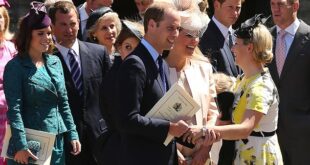Over the festive period, a wave of strikes are set to occur as workers from various industries are set to walk out in hopes of better pay and conditions. From transport to the NHS, education to postal services, tens of thousands are expected to take action as a recession grips the UK amidst the cost of living rises. Here, we run through all of the pre-planned strikes from all participating industries, giving you the best chance to plan ahead.
Rail
A number of rail strikes are set to take place this winter. The Rail, Maritime and Transport Workers (RMT) union represents Network Rail workers, who operate railway infrastructure such as signals, and workers at 14 of the UK’s 28 train companies.
RMT general secretary Mick Lynch said his members are striking in response to the government cutting jobs and refusing to increase pay in line with inflation. He also said the government wants to make changes to the Railway Pension Scheme by reducing benefits and making staff work longer hours while paying increased contributions, meaning they will have less money in their pension pots.
The RMT wants a pay rise of 7%, reassurance jobs will not be cut, and protected working practices and conditions. Aslef, which represents train drivers at 12 companies, is also striking, with its members wanting a “proper” pay rise to help with the increased cost of living as they say they have not had a pay increase since 2019.
The union said a number of train companies “have their hands tied” by the Department for Transport so are unable to negotiate a “reasonable deal,” which is why they are striking.
Rail strikes will take place on 25 November (just the London Tube), 26 November, 11-12 December (just Avanti West Coast), 13-14 December, 16-17 December, 3-4 January, 6-7 January.
An overtime ban from 18 December until 2 January by RMT members will also affect many train services.
Bus
Unite members working on Abellio-run buses in south and west London and on Metroline buses in north and west London are striking in November and December in a dispute over pay.
The union has said Abellio has failed to enter into “meaningful pay talks” about salary increases due for January 2023 and says its members are among the lowest paid in London. It said Metroline’s 10% pay increase offer amounted to a real terms pay cut due to high inflation.
Abellio strikes are taking place on 25-26 November, 1-3 December, 9-10 December, 16-17 December.
Metroline strikes are set for 1-3 December, 8-9 December, 15-16 December.
Postal
Members of the Communication Workers Union (CWU) will be walking out in November and December in a long-running dispute over pay and Royal Mail’s administration plans – which include 6,000 redundancies and delivering parcels on Sundays with no letters on Saturdays.
The strikes are going ahead after Royal Mail said it had delivered a “best and final” offer to the union, including a number of “extensive improvements”.
Royal Mail has said it offered workers a pay rise of up to 9% over 18 months, a new profit share scheme for employees and more generous voluntary redundancy terms.
However, the CWU said Royal Mail’s offer would turn the company into a “gig economy-style parcel courier, reliant on casual labour.”
Royal Mail strikes are planned for 30 November and 1, 9, 11, 14-15, and 23-24 December.
Nurses
Members of the Royal College of Nursing are set to strike for the first time in December following the government’s failure to commit to formal pay negotiations after a five-day deadline ended in November.
Thousands of NHS nurses will strike as they call for a rise of 5% above inflation as they said they have had a real terms pay cut of 20% since 2010. They are also calling for better working conditions as nursing vacancies are at a record high, so staff regularly work beyond their shifts without extra pay.
The strike will take place on 15 and 20 December in England, Wales and Northern Ireland.
Junior doctors
Junior doctors – any doctor below consultant level – who are BMA members will be balloted to strike on 9 January 2023.
They say they have had a real-terms pay cut of 26.1% since 2008, while their work has increased and morale is plummeting after working through the pandemic with “only valueless claps.”
Junior doctors were guaranteed a 2% pay rise in 2022/23, but that was put in place before the pandemic when inflation was below 2%, so the BMA has said it is actually a pay cut.
They were also excluded from the 4.5% increase the rest of the NHS has been promised. A potential strike date has not been set.
Education
Teachers in Scotland walked out on 24 November as they called for a 10% pay rise – which Scottish authorities say they cannot afford – and better working conditions.
University lecturers, librarians and researchers at 150 UK universities also went on strike on 24 November and will take action again on 30 November and 1 December in the biggest action of its kind in higher education.
The University and College Union said lecturers and other academic staff have suffered a decade of below-inflation pay rises, with a 3% increase announced this summer.
It is demanding a pay rise in recognition of the cost of living crisis, an end to insecure contracts and wants employers to reverse pension cuts imposed this year.
University administrators, cleaners, security and catering staff at 19 universities, who are Unison members, will also take action.
Source link



